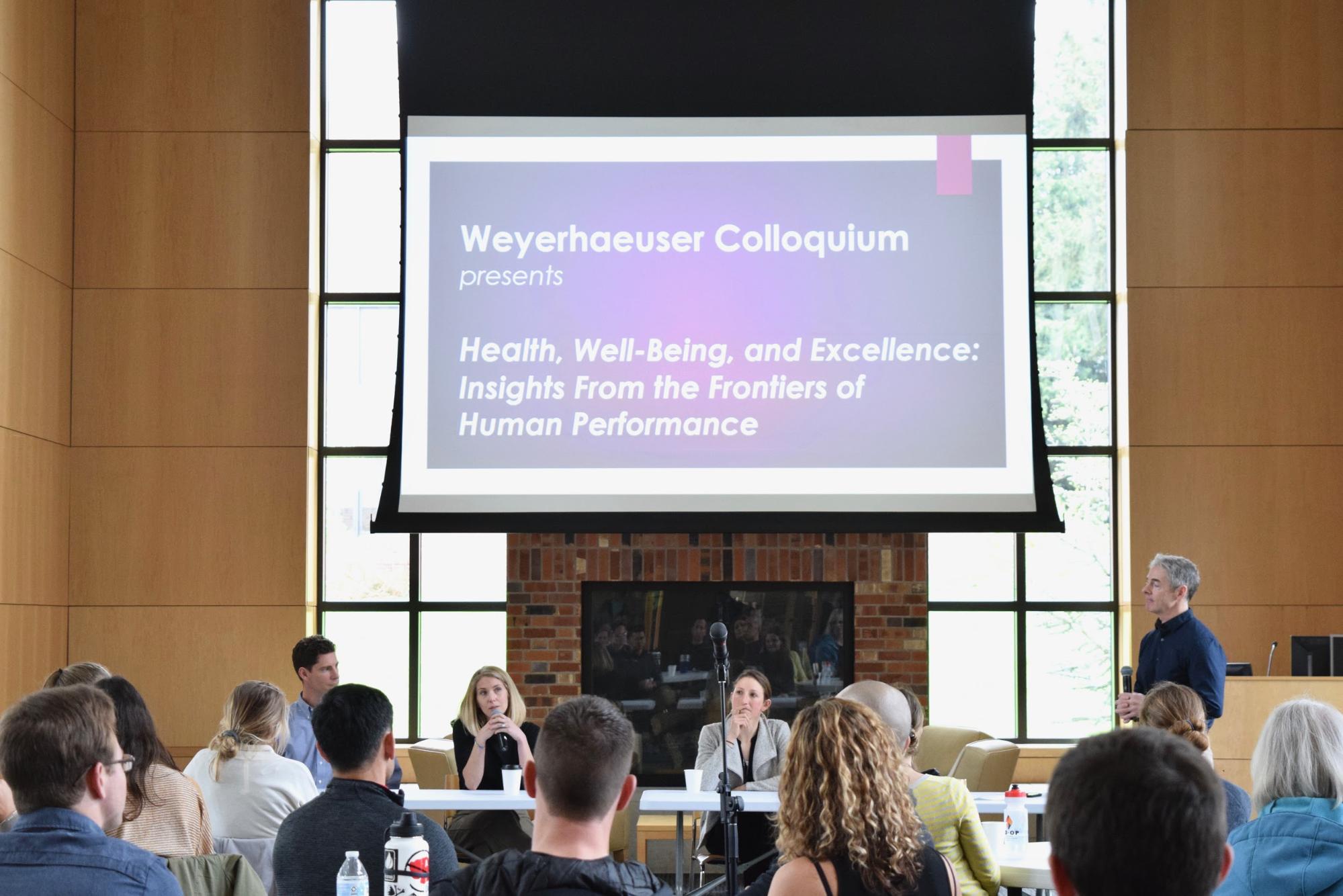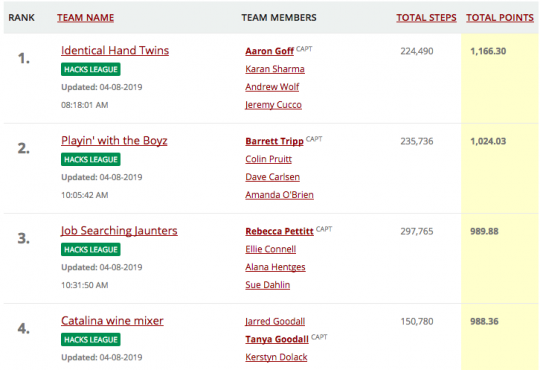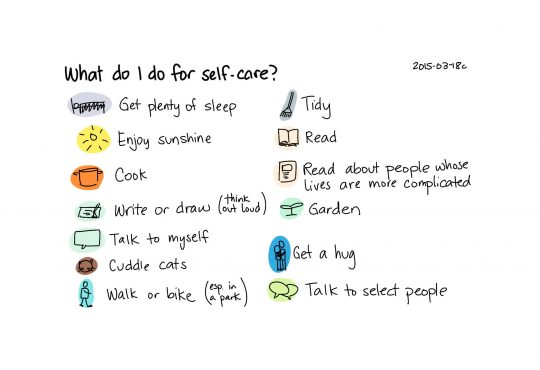Weyerhaeuser Colloquium presents ‘Health, Well-Being, and Excellence: Insights From the Frontiers of Human Performance’

In the world of competitive sports, well-being and excellence are often in competition with each other. As technology and sports medicine advances, healthcare providers have been better able to heal athletes for game day, but the question of their long-term health and longevity remains uncertain.
On April 17 at Puget Sound, as part of the Weyerhaeuser Colloquium series, three speakers with backgrounds in sports medicine and sports technology presented in a panel-style lecture. The speakers were Christine Agresta, an assistant professor at the University of Washington in the Rehabilitation Medicine department, Dr. Shawn Sorenson, an interdisciplinary scientist and educator from the University of Oregon, and Jessica Zendler, a biochemical engineer and former director of the Performance Research Laboratory at the University of Michigan.
The idea that athletes must essentially sacrifice their well-being in order to perform better has been accepted since the start of professional sports. Now, with income and reputation at stake, the pressure to push one’s body to the limit has intensified.
“We talk about the competing demands between health and performance and very often times we accept that those things are fundamentally in conflict. It’s almost like a priority if you’re going to be a competitive athlete you accept that you have to sacrifice your body to perform at the highest possible level,” Dr. Sorenson said.
On the one hand, this push to be a better athlete can have a negative impact on physical and mental health, but on the other hand, the drive to succeed can motivate athletes in all aspects of their lives.
“I think health and well-being are by-products of excellence if you have the right mind-set. … When you make that deliberate practice and that commitment to truly cultivating this interest that you have, then you do gain health, and you do gain well-being because it is an important aspect of your life,” Agresta said.
Despite the sense of purpose, professional athletes do struggle with physical ailments at the end of their careers. Now we are also seeing that the loss of a sense of community and drive can have a terrible impact on mental health. Many athletes have come forward to discuss issues of mental and physical health after their careers.
“It’s actually okay to say stuff like that out loud in the competitive sports world now. I heard Dwayne Wade who’s on his NBA exit tour right now talking about how he intended to seek professional counseling after the end of his NBA career because he thought the transition to life after sports would be a difficult thing for him. We had Kevin Love write an article about a year ago for the Players’ Tribune talking about his struggles with panic attacks and how that influenced his participation in NBA basketball,” Dr. Sorenson said.
Another discussion in the competitive sports world right now is the ethics of data collection with the advancement of technology. What is considered private health information and public data on athletes is a big grey area. Many athletes wear sensors that track health data and in some cases, the data can be shared without their consent.
“We’ll get to the point where the athlete doesn’t have a choice whether the sensor goes on them or not. It’s just coming off of broadcast feeds … if we’re talking about an 18-year-old college athlete, how much information should we be gathering on them without their consent?” Zendler asked.
Data technology, however, has given sports medicine professionals the ability to personalize plans for athletes in order to help them heal, adding to their overall health and longevity.
“In terms of workload and just straight from a musculoskeletal perspective, you would be able to objectively quantify their stress and appropriately load those tissues so that they have healthy, adaptive, resilient tissue. So, that’s what I think is most exciting, that you can personalize or individualize workloads for these athletes so they can come strong from a structural perspective,” Agresta said.
At the end of the day, being a professional athlete is a constant balancing act between physical and mental health and outstanding performance. If it were possible to find a happy medium through technology we would have a more ethical and humanized sports system.
“Part of what it means to perform at a high level, part of what it means to be excellent, is to ensure that we’re healthy people not only today, not only this week, not only this season, but throughout our lives. Then I think we can make these things complimentary, we can perform at a higher level if we approach it that way,” Dr. Sorenson said.




